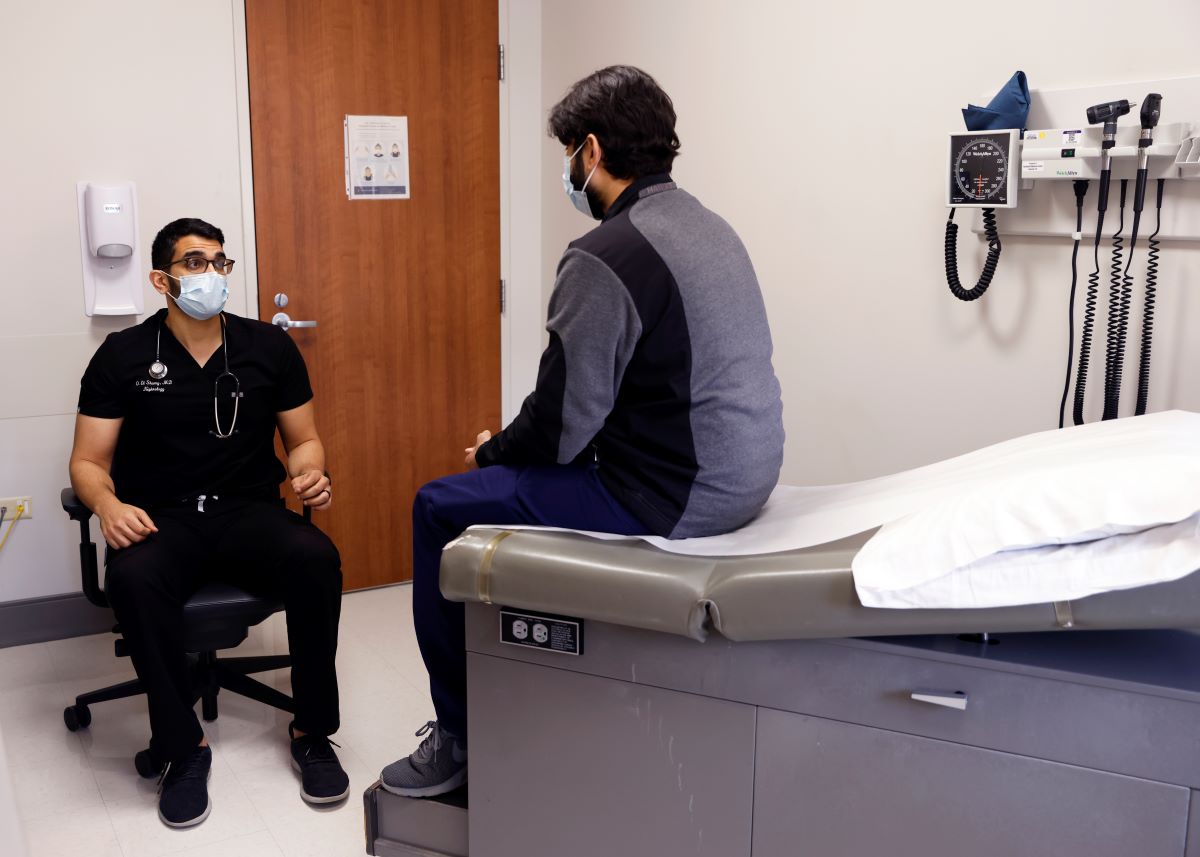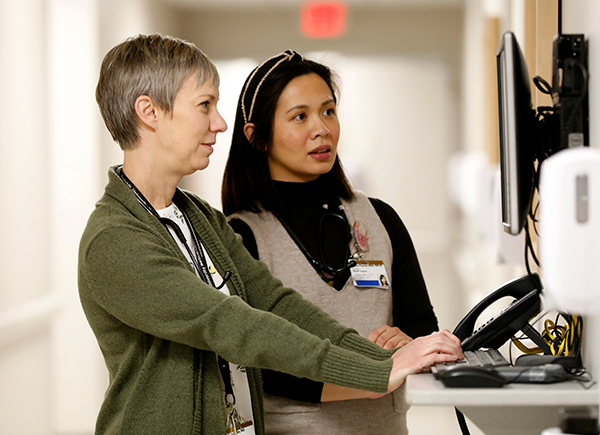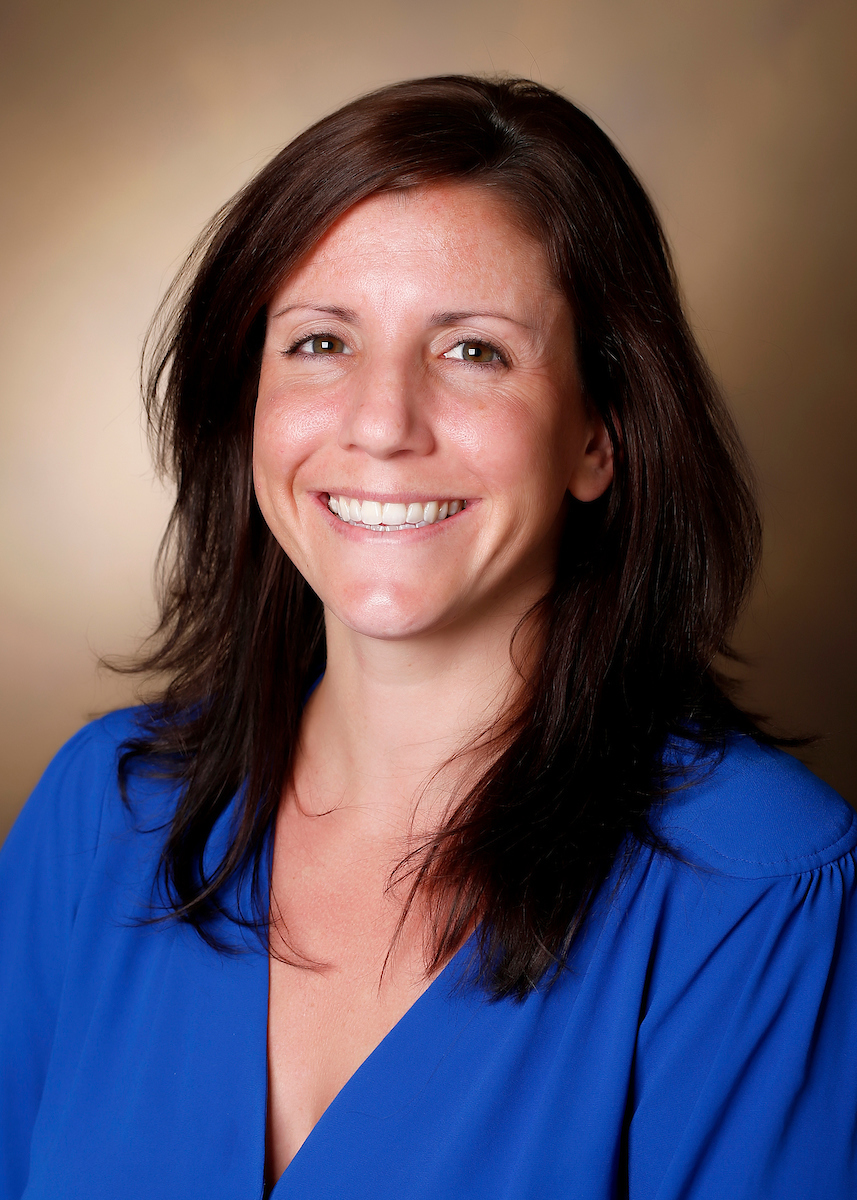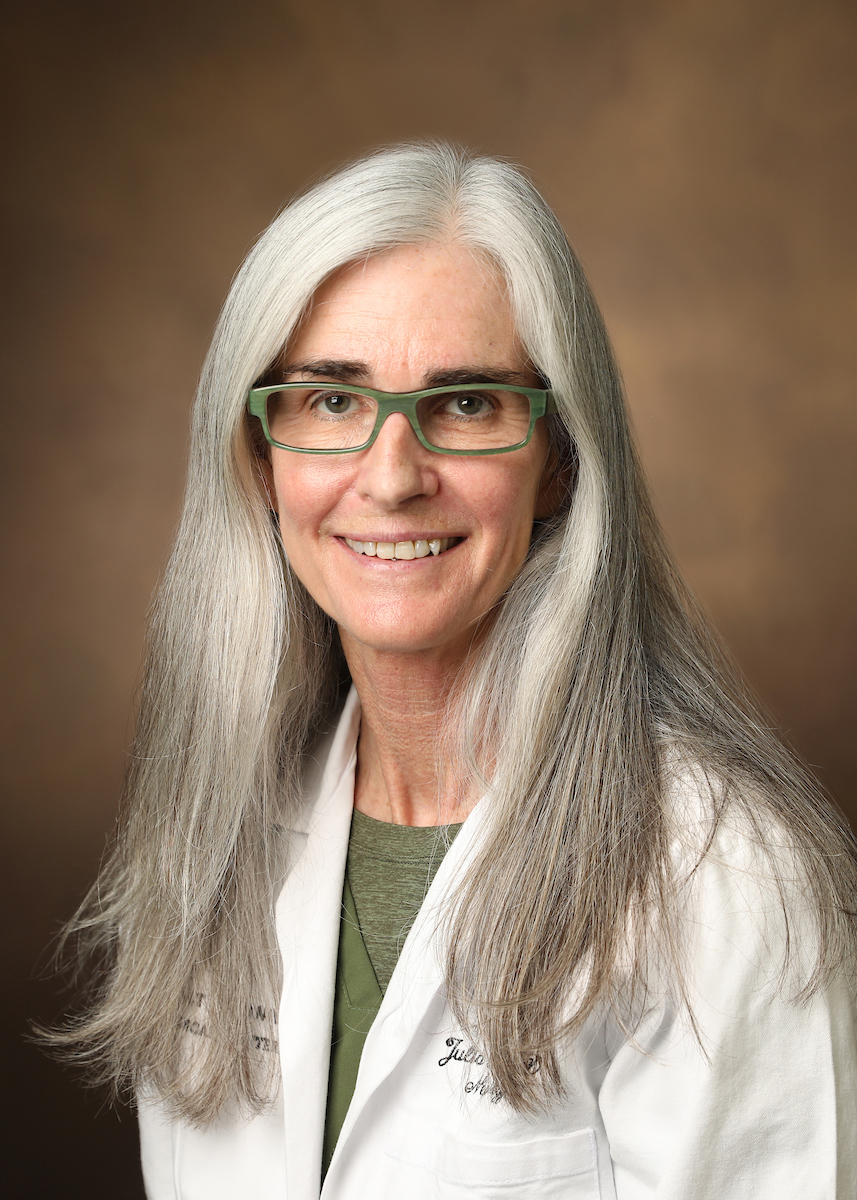The clinical portion of the fellowship is divided into serial two- to three-week rotations over six months. Fellows repeat the six months two to three times depending on their track. A sample of the six-month block is available below.
- VUMC Nephrology Consults
- Pathology
- VUMC Nephrology Consults
- VA
- VUMC ESKD
- Outpatient ESKD
- VUMC Afternoon Consult
- Transplant
- Outpatient Specialty Clinics
- VUMC AKI-ESKD Consults
Call
Call is divided up between the fellows as follows:
- Night call (home call): Varies based upon the rotation. First-year fellows take home call once every seven to 12 days. Second-year fellows average one to two home calls per month.
- Weekend morning coverage (6 a.m. to noon): Variable based upon the rotation, but typically two to three weekend days (Saturdays and/or Sundays) per month.
Continuity Clinic
Fellows have continuity clinic throughout their fellowship. Each fellow has one half-day per week of a general nephrology continuity clinic throughout the year. Each fellow is expected to attend, or find coverage for, their respective clinics during each of their rotations through the year.
Procedures
We train fellows in ultrasound-guided kidney biopsies, temporary dialysis catheter placement, and point-of-care ultrasound.
At VUMC, both native and transplant kidney biopsies are performed by the Division of Nephrology and Hypertension. This allows fellows an excellent chance to become competent in performing the procedure, in addition to learning the indications, risks, and benefits of a kidney biopsy.
At VUMC, temporary dialysis catheters are placed by many services, including nephrology, so as not to overburden the already busy nephrology teams.
Dr. Natalie McCall runs the POCUS curriculum throughout the academic year. It includes lectures, hands-on practice in the simulation center, and experience utilizing POCUS in treating patients, as well as performing procedures.
Description of Clinical Rotations
Inpatient Nephrology Consults – VUMC
- Composed of two fellows and up to two medical students/residents, the general consult service evaluates and helps manage all care not otherwise covered by the ESKD service. This includes diagnosing and managing causes of AKI, electrolyte and acid/base disorders, initiation of dialysis, continuous kidney replacement therapies, and management of apheresis. The fellow is on service until 1 p.m.
Inpatient ESKD Consults – VUMC
- This service is comprised of an attending, fellow, nurse practitioner and, at times, a medical student. The fellow is responsible for the management of care for ESKD patients on dialysis who have been admitted to the hospital. On this service, trainees learn how to tailor dialysis needs to coordinate ongoing inpatient care. This includes the continuation of dialysis in anticipation of a scheduled procedure, transition to alternative modalities, or adjustment of dialysis to meet the needs of patients with complex medical issues. Fellows are responsible for mastering the management of hemodialysis and peritoneal dialysis in the inpatient setting. The fellow is on service until 1 p.m.
Inpatient Combined AKI/ESKD Consults – VUMC
- This service is comprised of an attending and fellow. The goal of this service is to provide the fellow with a more real-world experience, taking both new AKI and ESKD consults from 8 a.m. to 2 p.m. The overall responsibilities are the same for the general and ESKD services.
Afternoon Consults – VUMC
- The afternoon fellow's day starts with a noon conference. At the afternoon conference, they will cover the general consult and ESKD services from 1 to 6 p.m., taking all new consults and covering the needs of those already on service. The overall responsibilities are the same for the general and ESKD services.
Inpatient Nephrology Consults – Tennessee Valley Veterans Affairs Hospital (located across from VUMC)
- One fellow and one attending comprise the VA consult service and help with the management of both acute consults and the management of ESKD patients on dialysis. Additionally, the fellow is responsible for assisting in the management of the outpatient dialysis unit at the VA and helping to coordinate care plans for outpatient ESKD patients. The VA fellow is available to perform biopsies if needed. The fellow on service is responsible for taking call 7 a.m. to 6 p.m. and has every other weekend off.
Inpatient Transplant Rogers service – VA and VUMC
- The Nephrology fellow works alongside the Transplant Nephrology fellow(s) at VUMC and the VA from 7 a.m. to 6 p.m. while on service. The shared responsibilities include evaluation of new transplant recipients admitted preoperatively and through the remainder of their hospital course. Additionally, the fellows are responsible for any consultations on previous transplant recipients admitted to other services. The fellows also share in the responsibility of performing transplant biopsies. The entire service is comprised of a transplant attending, transplant fellow, general nephrology fellow, intern, pharmacist and medical student.
Outpatient Nephrology Pathology, Pediatrics, interventional Radiology specifics (weekends off)
- Nephrology Pathology: Fellows have a dedicated rotation with our world-renowned Nephrology Pathology program, which evaluates over 2,000 specimens per year. Fellows on this rotation review cases from VUMC and the surrounding catchment area with Nephrology Pathology attendings and fellows, as well as daily teaching topics. This rotation is required in the fellow’s first year.
- Pediatrics: Round with and see patients with the Pediatric Nephrology consult service to obtain exposure to diseases that are less common in the adult population and help facilitate a greater understanding for adolescent kidney diseases.
- Interventional Radiology: Observe and participate in placement of tunneled dialysis catheters and access management, and attend monthly access conferences with IR, surgery and nephrology faculty.
Ambulatory Rotation (weekends off)
Fellows will have daily exposure to the following during their Ambulatory rotation:
- Outpatient dialysis clinic, including in-center, home hemodialysis and peritoneal dialysis
- Dialysis access clinic
- Vasculitis clinic
- Hypertension clinic
- Chronic kidney disease clinic
- Nephrology-palliative care exposure as part of a conservative care curriculum
- Kidney stone clinic
- Renal transplant evaluation clinic
Outpatient ESKD Rotation
Fellows have the opportunity to rotate with different Nephrology attendings during their outpatient hemodialysis shifts at the two Vanderbilt dialysis units, as well as attend home dialysis clinic. We have a robust outpatient dialysis program with over 300 patients, 40% of which utilize home therapies, including continuous ambulatory peritoneal dialysis, continuous cycling peritoneal dialysis and home hemodialysis. During this rotation, fellows work with the clinic’s multidisciplinary team to learn about the management of a dialysis unit, dialysis access and the water room. Graduating fellows are well-prepared to become medical directors of dialysis units and care for patients on home dialysis therapies and/or in-center hemodialysis.





